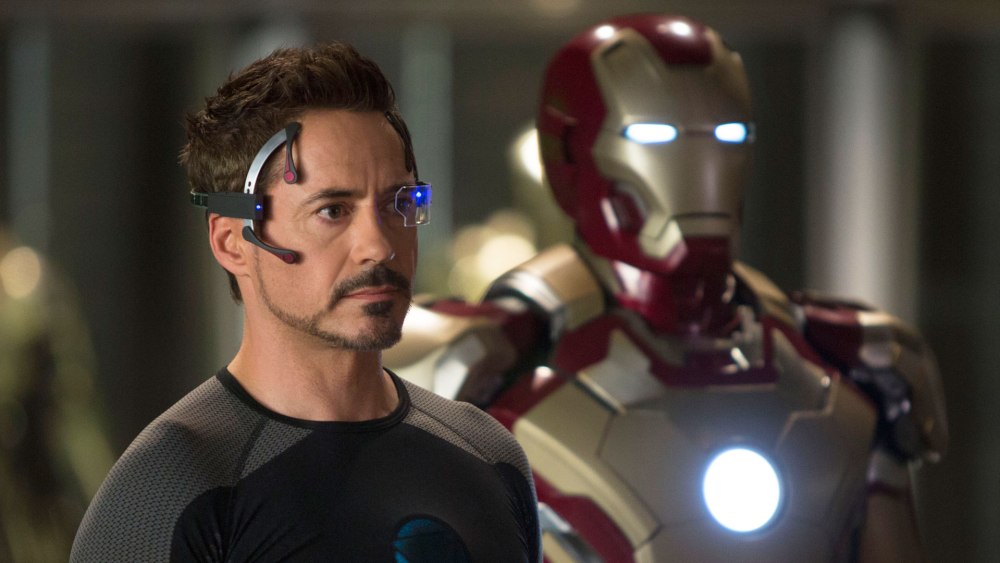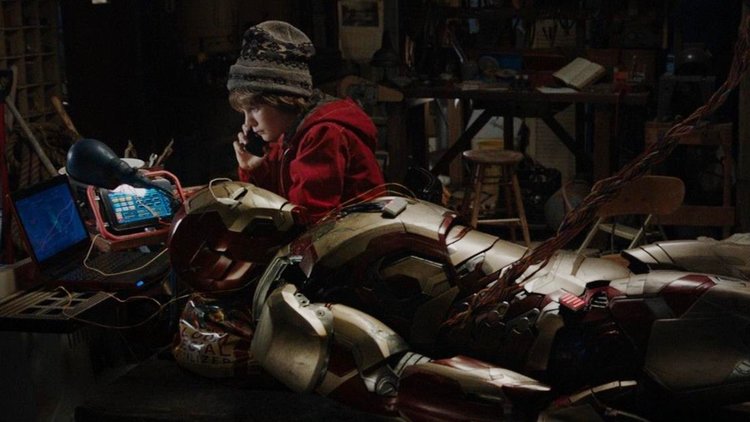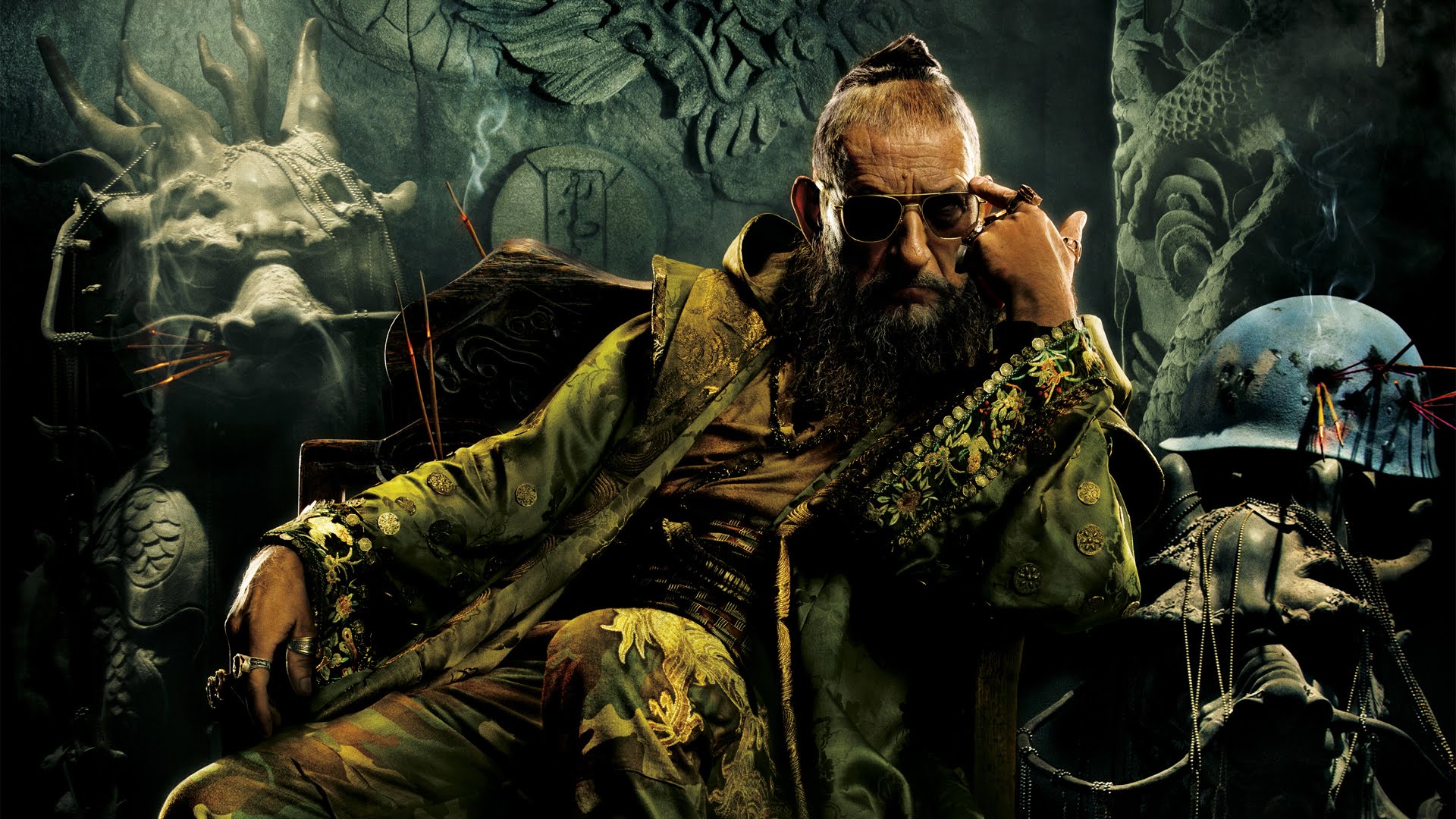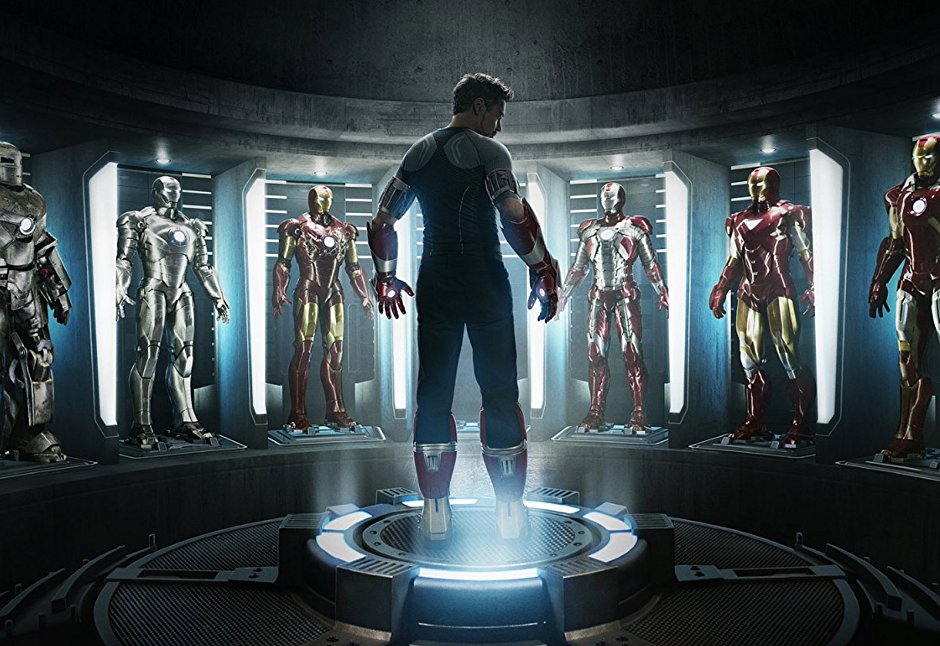The Mandarin plot twist left a sour taste in my mouth, as it did a lot of fans. The trailer teased a terrorist maniac, someone who was going to be Iron Man’s greatest foe; Marvel’s response to Heath Ledger’s The Joker, perhaps? In reality, we got a buffoon named Trevor Slattery in one of the most annoying rug-pulls in the history of cinema. At the time, a portion of hardcore fans of Marvel comics stood outside Marvel Studios with flaming pitchforks and large signs that read “Die. Shane Black. Die” — to the point where the studio had to release a short film as a retcon apology. I watched the movie a couple more times that year and then decided to bury my imaginary Blu-ray in my imaginary backyard… until yesterday, where I watched the movie again, the first time since it hit cinemas back in 2013. Believe it or not, my thoughts have changed drastically. Iron Man 3 is a damn good movie, one that is refreshing and goes against the grain. People often bash on the Marvel Cinematic Universe for being too safe and for following a tried and tested formula over and over and over again (outside of Guardians of the Galaxy and Thor: Ragnarok, that is). But I would argue that Kevin Feige’s willingness to take risks, experiment and allow auteurs to be well, auteurs, started a year before we teared up watching a motormouth racoon and a walking tree with horrible vocabulary, with Shane Black’s avant-garde Iron Man threequel. While this movie nestles perfectly within the larger MCU, it is still a SHANE BLACK Christmas party through and through.
Iron Man VS Tony Stark
The final instalment of the Iron Man trilogy is great when it’s a character piece and for the most part, it is. It takes place after the events of The Avengers, with everybody, both characters in the movie and audiences alike wondering now what? Well, now we deal with the aftermath. Instead of hitting the reset button and having Tony Stark go back to being his same old self, Shane Black turns him into a war victim, suffering from PTSD. By doing so, not only did he make Stark a far more interesting character, he changes the Battle of New York in The Avengers from a fun spectacle piece to something akin to a real world war.
This Shane Black flick is a TONY STARK movie more than it is an Iron Man movie, and after the extravaganza that is The Avengers, this is a much-needed switch in gear. Throughout the film, I couldn’t help but think back to Tony’s strong words to Peter Parker in Spider-Man: Homecoming: Speaking from experience, maybe? After living through a near-fatal incident in the Battle of New York, Tony feels helpless and small — “Gods, aliens and other dimensions. I’m just a man in a can.” Tony is determined to make his can better and stay hidden behind it, but Shane Black is hellbent on not putting Tony in the suit. Some say that Black outright hates the suit, which is a fair observation. After all, he takes the glorious Iron Man suit and turns into something terribly uncool. When Tony controls his suit remotely and saves everybody onboard the plane in a badass sequence, the suit is immediately hit by an oncoming truck and played off as comedy. In the climactic battle sequence, Tony gets his ass handed to him by Aldrich Killian, that is until he sees his favourite suit zoom towards him: “The prodigal son returns.” Once again, this should have been THE turning point and rousing moment of the battle, except the “prodigal son”, crashes and breaks, again in a comedic fashion. Does Shane Black hate the Iron Man suit (and perhaps even standard superhero tropes in general)? Maybe. Aldrich Killian gets smacked in the head by Pepper Potts immediately after he delivers his evil villain monologue. Or perhaps Shane Black knows that the man behind the suit is simply that much more fascinating. He’s right. The Tony Stark we get from Iron Man through The Avengers is interesting. Tony Stark post The Avengers is even more so. Tony suffers from anxiety, something a suave, braggadocious guy like himself isn’t used to. He lives in fear, desperate to protect the one thing he truly cares about — Pepper Potts — but in that desperation, he risks ruining his relationship with her.
To deal with his fear, Tony turns to work, or more specifically, he starts building Iron Man suits. Loads of it. His passion becomes a distraction and then an obsession. In the most heartwrenching scene of the movie, the usually egoistic Tony bares his soul to Pepper explaining why he’s been distant. Pepper understands. Except, the very next scene, Tony almost kills her in his sleep. You see, just like real-world soldiers who suffer from PTSD and sleep with guns even after the war has long ended, Tony does the same. Only instead of guns, it’s his suit, which he has upgraded to the point where it interlinks with himself. When he gets a nightmare, he accidentally calls the suit in his sleep, which then assumes Pepper is the threat and almost attacks her. Pepper is furious. We sympathize with Tony’s as we’ve seen what he’s gone through, but we also understand Pepper’s mounting frustration. She is human after all. Iron Man 3 offers some of the best romantic dramas in all of comic book movies. The relationship between Tony and Pepper is vital to the narrative just like we see in Deadpool and The Dark Knight. This movie isn’t just about Tony Stark, it’s also about Tony Stark in relation to his suits and Tony Stark in relation to Pepper Potts. Black asks the question: who is Tony Stark without Pepper and his suits? To answer this question, Black ships Tony thousands of miles away from home, suit broken. This, of course, happens after The Mandarin attack. Tony befriends a kid who reminds him of himself. It is here that Tony begins to find himself and deal with his anxiety head-on, without his usual distractions. Through the kid, Tony realises that it isn’t the suits that make him Iron Man; HE is Iron Man.
The Mandarin Problem?
What’s a superhero movie without a supervillain? Someone to push the hero’s buttons and exploit his weaknesses. Insert The Mandarin. I remember feeling the chills run up my spine when we’re first introduced to the terrorist named The Mandarin via cryptic messages. From his voice to his motivations, The Mandarin was a menacing force, one who is much, much darker than all the Marvel villains that came before it. And Ben Kingsley slays the roll. And then the twist happened and slapped everyone in their faces. Upon my latest rewatch, though, I found myself enjoying the twist. Now, had there not been a twist, this movie would have been much cooler. But as made clear throughout the movie, Shane Black isn’t interested in what’s cool. There is a certain genius to Shane Black’s writing that I did not realize (or accept) until my latest rewatch.
All great twists offer a different experience upon a second viewing. Just like in The Sixth Sense there are clues laid out in front of you in plain sight, but as they say, the closer you look, the less you’ll see. In one of the scenes, we hear Aldrich Killian say, “Boss is about to record… Well, you know how he gets.” When you watch it the first time, you’re so mesmerized by the facade that is The Mandarin, that your mind immediately translates that line to “Get your act together! Or The Mandarin will lose his sh*t and come after you!” Upon my latest rewatch, I realised the subtle sarcasm and annoyance in Guy Pearce’s tone. The same thing applies to another scene in which Aldrich Killian says, “No eye contact with The Mandarin unless you wanna get shot in the face.” You assume that the threat comes from The Mandarin, but in actual fact, the trigger-happy person is Killian himself. But the biggest clue is the concept of The Mandarin, as a whole. Ben Kingsley is half Indian, half English, playing a Middle Eastern terrorist who’s named The MANDARIN, talking about Chinese fortune cookies which are in actual fact, an American invention. He’s nothing but a hodgepodge of ideas. A troll. We were just too dumb to see it. Besides the wit in Shane Black’s writing, The Mandarin twist not only reinforces one of the themes in the movie — identity — it also sticks to the personal story that Black is trying to tell. The real threat, Aldrich Killian isn’t a grandiose villain like The Mandarin, but rather a man from Tony Stark’s past; A man who was shunned by Stark during his playboy days. Without him even realising, Tony Stark created the villain, just like how Mr Incredible created Syndrome.
Not sticking its landing
I’m glad I gave Iron man 3 another shot. Without the hopes and expectations of The Mandarin being MCU’s GREAT villain, I was able to kick back and wallow in Shane Black’s mostly awesome writing. It is a very good movie. However, it is a movie that doesn’t necessarily stick its landing. Guy Pearce is a good actor and he delivers, but Aldrich Killian, while a good concept isn’t a particularly well-written character. We don’t spend enough time with him to fully understand his motives. He says he wants to sell weapons to both sides? — I think — which is an interesting theme. But it is one that is just mentioned in passing without further exploration (Rian Johnson gets it right in The Last Jedi). The problem isn’t the twist itself, it’s what we get after that’s slightly underwhelming. For all the interesting themes that Black sets up, the film suffers the same problem as Wonder Woman: It just ends in an explosion fest.



